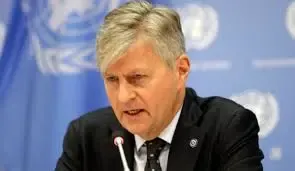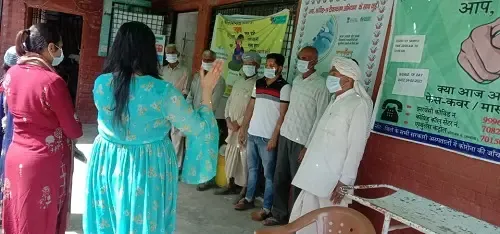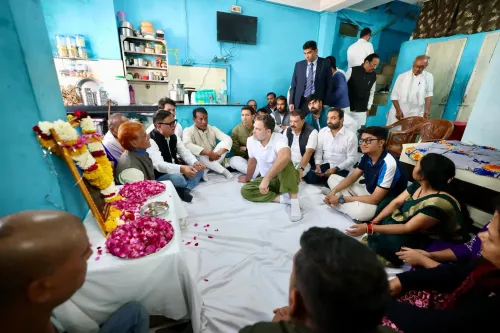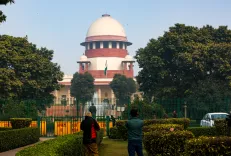As Stability Returns to DR Congo, Disease Outbreak Risks Surge: UN

Synopsis
Key Takeaways
- Calm is slowly returning to Goma.
- Risk of cholera and Mpox outbreaks is increasing.
- Infrastructure damage hampers aid delivery.
- Concerns about regional conflict escalations.
- Relief workers assess damage and health risks.
United Nations, Feb 1 (NationPress) As tranquility begins to return to Goma, a vital eastern city in the Democratic Republic of the Congo (DRC), the threat of disease outbreaks, such as cholera and Mpox, is rising on the periphery, according to officials from the United Nations.
"In Goma, the situation remains tense and unstable, with sporadic gunfire still occurring within the city; however, I would assert that overall, calm has been gradually reinstated," stated Under-Secretary-General for Peace Operations Jean-Pierre Lacroix during a press briefing on Friday.
"Water and electricity have been restored in much of the city, yet we still face the challenge posed by unexploded ordnance... a significant hindrance to movement," he continued.
The city's airport runways suffered considerable damage during recent conflicts, rendering them unusable. Aid cannot be flown in, as only roads leading to neighboring Rwanda remain open, while domestic routes are blocked, as reported by Xinhua news agency.
Lacroix noted that the M23 rebels and the Rwanda Defence Force (RDF) continue their advance towards Bukavu City, the capital of South Kivu province.
"This is certainly a cause for concern," he remarked.
When reminded of the threats made by the DRC's adversaries to advance on the capital Kinshasa in the west, Lacroix commented, "The potential for loss of life and destruction would be very alarming."
He also expressed apprehension that the ongoing conflict could escalate.
"We are worried, not just about eastern DRC, but historically, this could ignite a broader regional conflict," he warned. "Thus, it is critically important that all diplomatic initiatives focus on preventing this and achieving a halt to hostilities."
Regarding diplomatic efforts, the UN peacekeeping chief highlighted regional and African Union involvement, the leadership of the UN mission known as MONUSCO, and UN Security Council meetings, but no ceasefire has been established.
Nonetheless, he mentioned that a collaborative government-MONUSCO working group was formed to coordinate various aspects such as security, human rights, humanitarian communication, and the legal status of territories controlled by the M23 rebels and the RDF.
Lacroix stated that the primary focus of UN peacekeepers is to safeguard their personnel and resources, as well as the civilians seeking refuge within their facilities, including non-combatants, as mandated by international humanitarian law. MONUSCO's infrastructure is being tested, if not overwhelmed, as they strive to provide water, food, and sanitation to those in need.
He also stressed the importance of respecting UN premises.
"These are inviolable," Lacroix asserted. "We cannot emphasize this enough in the present situation where MONUSCO bases face risks, and at times, they have been threatened by the presence of disarmed FARDC (Federal Armed Forces of the DRC) soldiers."
In spite of these challenges, the UN Office for the Coordination of Humanitarian Affairs (OCHA) reported that relief workers are assessing the damage.
The World Health Organization (WHO) noted that government and local as well as international Red Cross organizations recovered 700 corpses from the streets of Goma between Sunday and Thursday, and around 2,800 individuals received treatment for injuries.
Humanitarian partners have visited locations housing internally displaced persons around Bulengo and Lushagala, on Goma's outskirts. They discovered that water and healthcare services are still functioning, but the situation remains dire. Cholera cases have been reported, and there are concerns about a potential Mpox outbreak among displaced populations.
OCHA stated that access to safe drinking water in Goma continues to be interrupted, compelling residents to depend on untreated water from Lake Kivu, which will exacerbate the risk of waterborne disease outbreaks.










